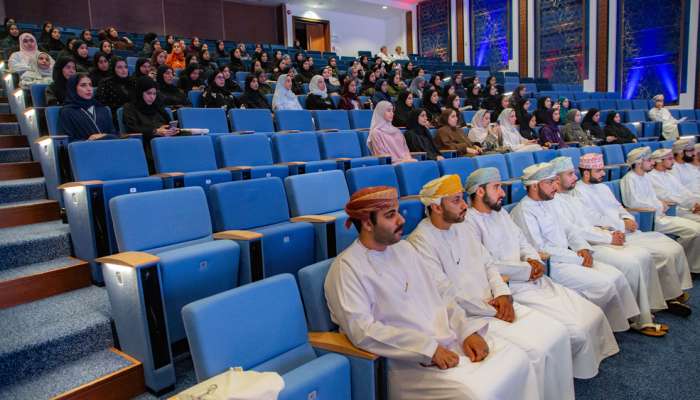
Muscat: A total of 198 physicians from various health institutions in the Sultanate of Oman have enrolled in the specialized training programs for the 2025/2026 academic year at the Oman Medical Specialty Board (OMSB).
This includes 72 doctors from the internship program and four physicians who joined local fellowship programs in pediatric cardiology at the Royal Hospital, adult hematology at the University Medical City (Sultan Qaboos University Hospital), and otology and otologic surgery at Al Nahdha Hospital.
In his speech during the orientation day for the newly enrolled physicians, Dr. Hood Abdullah Al Abri, Vice President for Academic Affairs at OMSB, emphasized that the next phase of specialized medical education isn't limited to acquiring theoretical knowledge in their respective fields. "It is an intensive experience that will take you to advanced stages of clinical excellence, where knowledge, skill, and behavior are integrated to enable you to make sound decisions for your patients and in work environments in general," he said.
He added that modern medicine requires rapid adaptation to scientific and technological advancements, and theoretical knowledge alone is no longer sufficient. It has become essential to interact with modern tools that enrich learning and improve performance. He stated that simulation-based medical education and the use of advanced digital technologies and artificial intelligence have become fundamental pillars that enable accurate decision-making, effective diagnosis, and an improved patient experience in receiving integrated healthcare.
Dr. Raihana Abdulmunim Al Majini, Head of the Institutional and Training Programs Accreditation Section at the OMSB, gave a detailed presentation on the components of the advanced medical education training programs and their importance in enabling trainee physicians to complete their training journey. She discussed what is expected of the trainees and what they can expect from the program, explaining the mechanisms for training structure, performance evaluation, quality monitoring, and tracking trainee progress toward qualifying as competent physicians.
The orientation program included an open dialogue session where new physicians had the opportunity to ask questions and seek clarifications on various aspects, including educational curricula, evaluation methods, academic follow-up mechanisms, exams, and available medical resources and references in the OMSB medical library.
The orientation day for new physicians is held annually to introduce enrolled doctors to the systems, required skills, and related projects during the training period, as well as the physician's role in improving their scientific skills and capabilities.